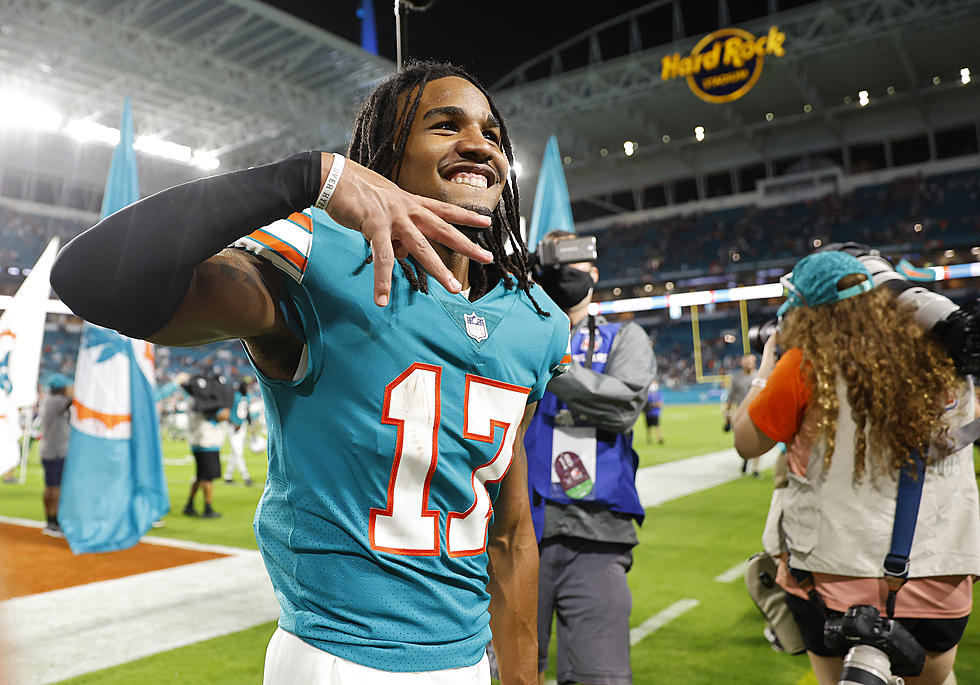
Fixing the NFL Overtime Rules
The Kansas City Chiefs and Buffalo Bills played one of the most entertaining games in NFL history to cap off one of the most electrifying weekends ever for pro football.
Josh Allen and Patrick Mahomes matched each other pass for pass in the AFC divisional playoff matchup. The two combined for 700 yards, seven passing touchdowns and no interceptions. This was the first time this has ever happened in an NFL playoff game according to Stathead.
The last two minutes of regulation began with three lead changes. This put the Bills ahead 36-33 with 13 seconds remaining. Somehow, the Chiefs managed to pick up 44 yards in just 10 seconds of game time. This set up Harrison Butker from 49 yards out to send the game to... overtime.

You know the saying. Leave your blood, sweat, and faith in coin flips on the field. Josh Allen called tails, the coin was sent skyward by John Hussey and it landed on heads. Mahomes got the ball thanks to a coin flip and he marched his team down the field for the touchdown and the victory. All jokes aside, the Chiefs won the coin flip and it aided them in winning the game. Does this mean if the Bills won the toss that they would have won the game? Of course not, but the odds would have been in their favor.
This conclusion sent twitter into an uproar. In one of the greatest quarterback battles in NFL history, a coin flip had kept one sidelined. Everyone, excluding Kansas City faithful, wanted to see Allen with another chance to match Mahomes. At this point, a better ending may have been for Mahomes and Allen to throw footballs into those Dr. Pepper trash cans that students use to compete for tuition money during college football season.
Brett Kollmann parrots many fans' frustration in much kinder words. The overtime rules took the fun away from us. We wanted to see Mahomes and Allen air it out until someone gave in.
Even Chief's head coach Andy Reid said he would welcome a rule change.
Before I offer my solution to the problem, I want to present some common criticisms that may be offered to changing the rules to begin with. Some may argue that if you wanted to win, your team should have won in the first 60 minutes or played defense in overtime. This claim is nonsense.
According to Stathead, we have had 160 games played (a fairly large sample) under the current overtime rules in place since 2011. Of these, the team who gets the ball first has won 52% of the time, the team who kicks has won 42% and the other 6% have been ties which is possible in the regular season.
The team who gets the ball first clearly has some advantage. The NFL argues that their current rules are in place to prevent injuries. To address this claim my caveat is that my rule changes will apply only to postseason games. The regular season rules could be kept the same, or changed for continuity with the postseason.
Here are the most important aspects of the NFL's current postseason overtime rules:
- A coin toss decides which team gets to possess the ball.
- If the first team to possess the ball scores a touchdown it wins the game.
- If the first team to posses the ball kicks a field goal or fails to score play continues.
- If the second team to posses the ball takes the lead or is losing after its possession the game is over.
- If the second team to posses the ball kicks a game-tying field goal the game becomes sudden death.
There are other clock and timeout rules, but the rules above are the most important. Here are my proposed changes:
- A coin toss will be conducted just as if it were the beginning of a game.
- Both teams will have equal possessions. There will be no clock and no timeouts by coaches.
- The first overtime will be a normal possession. One team will kickoff and the other will start on offense. If the first team scores they will kickoff to the other. If they fail to score the other team takes over (via punt, turnover or turnover on downs). Regardless, the other team will get a possession and if they break the tie (or fail to score enough to match the opposing team) they win (or lose).
- If the game is still tied there will be a second overtime in which the team who lost the first coin toss will get to choose offense or defense. This time, both teams will start on the 25 yard line of the opposition (like college) and have alternating possessions. If either score a touchdown they must attempt a two-point conversion. Field goals are allowed.
- For the third overtime and beyond there will continue to be alternating possessions with each team having to go for two if they score a touchdown. However, no field goals are allowed and both teams start on the opposition’s 10 yard line (like high school). The game continues until someone is able to break the tie after equal possessions.
By combining pro, college, and high school football you get rules that ensure equality and ones that do not strip the game of field position and kickoffs until the second overtime like the college and high school game does out of the gate.
Even these rules would not make games last forever. And if they do, I guess we will just have to watch Patrick Mahomes and Josh Allen duke it out for eternity. Poor us.
Alabama Football Players in the Hall-of-Fame
2021 Alabama Crimson Tide Recruiting Class Signees
The 2021 Alabama Football Schedule in Photos
More From Tide 100.9









